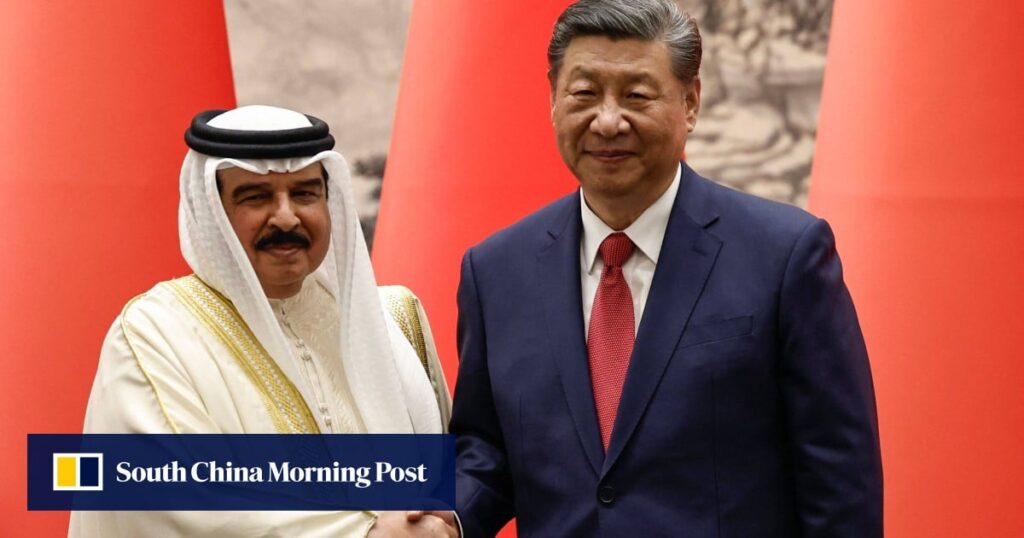The recent Comprehensive Strategic Partnership (CSP) agreement between China and Bahrain has raised eyebrows among analysts, given Bahrain’s relatively modest level of engagement with China. The agreement, announced on May 31 during a visit to Beijing by Bahrain’s King Hamad bin Isa al-Khalifa, was seen as a move to align Bahrain’s Vision 2030 economic development program with Chinese President Xi Jinping’s Belt and Road Initiative.
The announcement of the CSP was preceded by the launch of direct flights between Bahrain and China and followed by preliminary cooperation agreements between their sovereign wealth funds and chambers of commerce. However, Bahrain stands out from other countries that have signed CSP agreements with China in the region, as it has not engaged Chinese companies for large-scale construction projects or major energy exports to China.
Analysts speculate that China’s decision to offer a CSP to Bahrain may be aimed at undermining the United States’ strategic interests in the region. Bahrain has a longstanding security alliance with the US, hosting the US Navy’s Fifth Fleet headquarters for almost 30 years. The US has declared Bahrain a major non-Nato ally and signed security agreements with the kingdom, guaranteeing American military intervention in case of an attack.
In light of these developments, China’s move to strengthen ties with Bahrain can be seen as part of the broader competition between China and the US. The CSP with Bahrain could also be a strategic move by China to counter US influence in the region. Analysts suggest that China’s engagement with Bahrain, as well as other key regions like Russia and Central Asia, is aimed at mitigating US containment strategies and asserting its own influence in the region.
Looking ahead, the impact of the CSP on Chinese trade and investment in Bahrain remains uncertain. The CSP with Bahrain should be viewed in the context of geopolitical dynamics, with Bahrain and other Gulf Arab states seeking strategic multi-alignment with major powers like China, Russia, and the US.
Overall, Bahrain’s decision to enter into a CSP with China reflects its efforts to navigate the complex geopolitics of the region and balance its relationships with major powers to ensure its security and maintain an independent foreign policy.
